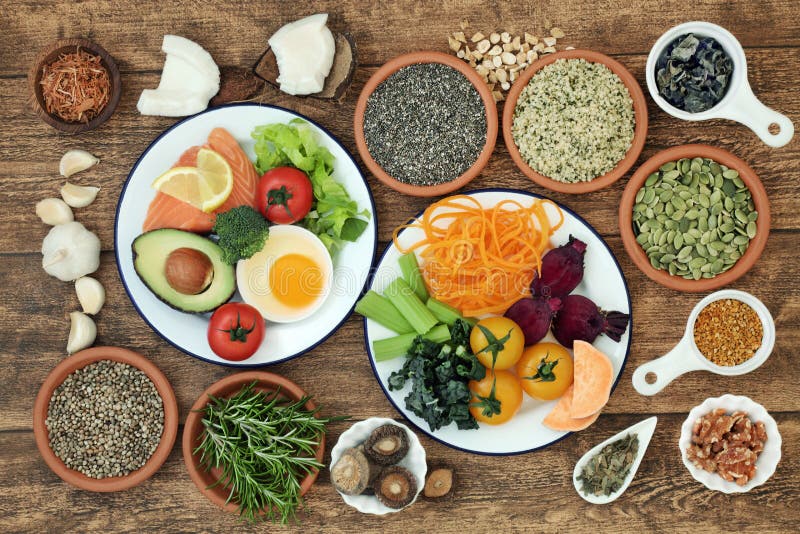Contents
Different Ways for Seniors to Keep the Brain Healthy
Changes occur in many different regions of our bodies as we age. And how to keep the brain healthy is no exception. Inflammation may occur in response to injury or disease. Also, connectivity between neurons in some brain regions might be impaired. Even in healthy seniors, these kinds of alterations might influence cognitive performance.
Continuing research in brain health suggests that the brain retains the potential to adapt by developing new neural connections. This tendency can be known as neuroplasticity. And it’s great news for seniors who want to keep their minds healthy. Using neuroplasticity’s full potential necessitates a focus on many components of your lifestyle connected to cognitive health.

Focus on Physical Health
Remain on top of your entire physical health by devoting time and attention to this aspect of your life. Are you obtaining your recommended health checks and treating your chronic illnesses? It’s critical to keep in touch with your doctor about your medications. Also, be aware of any potential adverse effects on brain function, memory, or sleep.
In addition, limiting alcohol use and avoiding nicotine products are two ways to improve physical health. You should also focus on good sleeping habits. And ensure that you receive adequate rest. This aims to cut any risks associated with falls and other incidents.
Managing High Blood Pressure

Blood pressure control is frequently linked to heart health. Mild cognitive impairment, which is a risk factor for dementia, can be avoided by lowering blood pressure.
High blood pressure rarely causes noticeable indications or symptoms in everyday life. Having it checked by a doctor on a regular basis is critical. If your blood pressure rises, your doctor may suggest lifestyle adjustments such as an exercise program or a diet. Or they may prescribe medication.
Consume a Healthy Diet
Let’s talk about the impact of a well-balanced diet on brain health and mental agility. There is some evidence that those who eat a Mediterranean diet are less likely to develop dementia. Although the research is still in its early stages, the capacity of this diet to improve cardiovascular health could be the catalyst for reducing dementia risk.
A balanced diet includes whole grains, lean meats, vegetables, fruits, poultry, fish, and low-fat or nonfat dairy products. It emphasizes portion control and water while restricting solid fats, sugar, and salt. When followed closely, the MIND diet has been related to a lower risk of Alzheimer’s disease and a slower rate of cognitive decline.
Focus on Physical Activity
While there are some well-known benefits to staying physically active, whether through exercise or daily activities, there are also some lesser-known benefits. The discovery of a relationship between physical activity and brain health may surprise you. Exercise boosted the brain’s ability to maintain and build new network connections, which is critical for cognitive function, according to one study. According to other studies, exercise increases the size of a brain region associated with memory and learning, resulting in improved spatial memory. Aerobic exercise is thought to be better for brain health than non-aerobic exercise.
According to the Physical Activity Guidelines for Americans, adults should obtain at least two and a half hours of physical exercise every week. Walking is a popular alternative for seniors, as are programs that teach them how to move safely and avoid falls, which can help them prevent brain injuries that affect mental agility. Always check with your doctor before beginning a new workout routine.
Keep Your Mind Active
People who engage in personally meaningful activities report feeling happier and healthier. And also, acquiring new abilities has boosted cognitive capacity and memory in studies. Engaging in new and old hobbies, particularly those that are more intellectually demanding, can benefit a senior’s mental agility.
Attending (or teaching) a class, volunteering, or practicing a skill, such as quilting, carpentry, or photography, are all examples of ways to keep your mind occupied. These activities, according to some scientists, protect the brain by generating “cognitive reserve,” or the ability to adapt to age-related brain changes. Also, some mental processes become more adaptable in health settings.
Stay Social and Connected
We talk a lot about how important it is for elders to have appropriate socializing and human connections since there are so many benefits, not the least of which is to keep the brain healthy. Connecting with others through social activities and community events might help you feel less alone and keep your brain busy. People who participate in personally meaningful and functional activities with others live longer, according to research. These activities may also boost cognitive performance.
Spending quality time with family and friends has no replacement. Consider volunteering for a local organization, joining a club, or meeting up regularly with an older adult walking group. Some of these activities have been linked to lower dementia and cognitive impairment risk.
Manage Stress
Chronic stress can alter the brain over time, impair memory, and raise the risk of dementia. As a result, it’s critical to manage stress and improve your ability to recover from stressful events. Moreover, there are several strategies to minimize and manage stress, ranging from regular exercise and relaxation techniques to journaling and positive or gratitude practices. Stress management, regardless of the methods that work best for you, can significantly influence how to keep the brain healthy and support mental agility.
Mitigate Cognitive Health Risks
Various risk factors can impair cognitive health, including genetic, environmental, and lifestyle variables, all of which can deteriorate thinking abilities and the capacity to accomplish regular tasks. While hereditary factors are uncontrollable, you can adjust many environmental and lifestyle variables to lessen the risk, such as:
- Some physical and mental health problems (such as high blood pressure or depression)
- Brain injuries (such as those due to falls or accidents)
- Some medicines or improper use of them
- Lack of physical activity
- Poor diet
- Smoking
- Drinking too much alcohol
- Sleep problems
- Social isolation and loneliness
In addition, it’s critical to keep these risk factors in mind and speak with your doctor about how to reduce them. You or a senior in your life may do what you can to keep the brain healthy and support mental agility by making efforts to prevent the risks of cognitive decline.
Power Foods to Keep the Brain Healthy for Seniors

It’s no secret that eating well helps a healthy body, but eating well can also help to reduce the risk of cognitive loss as we get older. Researchers have discovered that older persons who ate the most nutritious foods had a roughly 25% reduced risk of cognitive impairment than those who ate the least healthy foods.
So, what foods should be included in a brain-healthy diet? The following is a list of the best brainpower foods, in no particular order, that can help to keep the brain healthy, particularly for seniors looking to avoid cognitive loss.
Salmon
Switching fish for beef a couple of times a week, according to research, can help maintain the brain healthy. In the brain, the fatty acid DHA is the most abundant. Your brain will work better if you have more DHA in your blood. Low amounts of omega-3 fatty acids in the blood have been linked to decreased brain capacity and poor mental function.
Walnuts
The fact that these nuts resemble tiny human brains is no coincidence. According to the Alzheimer’s Research Center, walnuts are high in Vitamin E, which helps to trap free radicals that might harm brain cells. According to a study conducted by Rush University Medical Center, those who consume foods high in Vitamin E have a decreased chance of acquiring Alzheimer’s disease.
Green Tea
Green tea is high in enzymes, amino acids, and vitamins, which can help relieve mental tiredness and keep the brain healthy. According to research published in the Journal of Biological Chemistry, it also includes an antioxidant called EGCG, which helps prevent beta-amyloid plaques from injuring brain cells.
Eggs
Choline is a vitamin that the brain utilizes to generate a neurotransmitter that may be important for memory and communication between brain cells. Choline consumption was linked to more excellent memory function in a 10-year study conducted by Boston University researchers.
Blueberries
Blueberries may lessen the consequences of dementia by protecting the brain from oxidative stress. A meal high in blueberries restored short-term memory loss. According to research conducted by Tufts University and the USDA, it reversed some loss of balance and coordination in aged rats.
Avocados
Although avocado is a fatty fruit, it contains monounsaturated fats that aid blood flow. A healthy blood flow can help to keep the brain healthy. Avocados can also help control blood pressure. And minimize the risk of hypertension linked to cognitive impairment.
Spinach
Spinach, a strong source of folic acid, has been demonstrated in trials to help women avoid dementia.
Dark Chocolate
Although it may be difficult to believe, certain studies claim it can help with memory. Chocolate with a 70% cocoa content or more contains brain-boosting substances such as flavonoids (antioxidant plant compounds) and caffeine. Which collect in regions of the brain that affect learning and memory.
Pumpkin Seeds
Because brain health begins to deteriorate long before we reach our senior years, providing the brain with potent nutrients should be a top priority. Pumpkin seeds are high in antioxidants, making them one of the foods that can help protect the body and keep the brain healthy. Magnesium, zinc, copper, and iron are all abundant in them.
Conclusion
You’re getting old in years. In addition, you’ve begun to notice changes in your memory and thinking. Also, your keys are becoming increasingly difficult to locate. You must have a few more seconds to consider where you parked. Or you are having difficulty finding the proper phrase to express yourself in talks. Is this a natural occurrence or a symptom of dementia?
Our brains diminish as we become older. Its blood flow becomes more sluggish. In addition, as the brain shrinks, certain nerve cell connections are lost. Memory lapses will become more prevalent. These lapses are not always a sign of dementia, but they are a symptom of becoming older. Also, taking care of your body and mind is one approach to ease these symptoms.
Moreover, aging is an unavoidable reality. How we treat our bodies today will impact our quality of life as we age. Make sure you continue to exercise, consume a well-balanced diet, and keep the brain healthy as you become older. So, you may live a long and happy life filled with memories.
Read More:
How to Keep Brain Sharp (Time.com)






